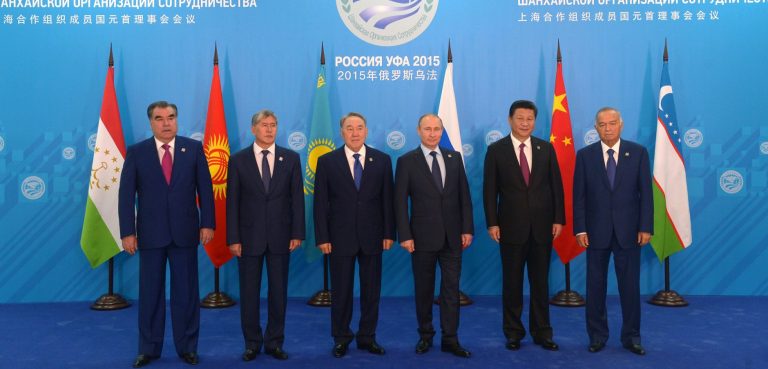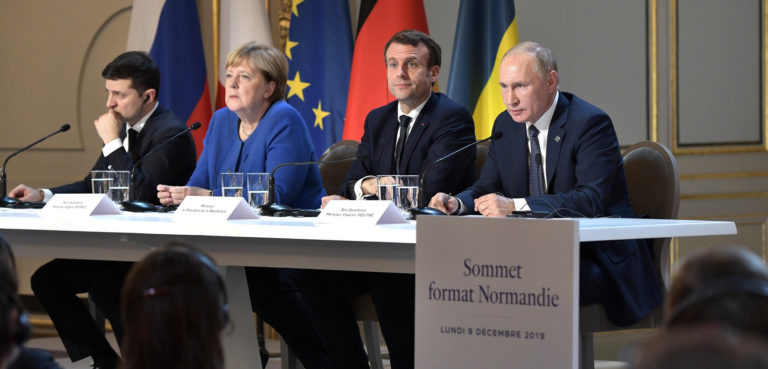By now, no one can believe that economic sanctions will force Putin’s Russia to rethink its invasion of Ukraine. The rouble has stabilized, methods of bypassing sanctions are well known, and China will keep economic lifelines open. It may sound trite, but Russia isn’t going to back off just because McDonald’s has shut down its Moscow branches.
As the fighting grinds on, however, another reality becomes clear: Russia’s war chest will suffice for carrying out its ‘special military operation,’ but those resources are unlikely to see it through the peace that follows. At that point, foreign capital will be necessary in order to offset its decoupling from the Western World.
A first-choice creditor nation will be China, which some have predicted may be playing a ‘long game’ that takes as its final objective the leasing or purchase of the Russian Far East. If this scenario is credible, China’s position on the war becomes something of a win-win. If, on the one hand, Russia should emerge from the war with something to show for it then China will feel a greater confidence in mounting an attack on Taiwan; whereas if, on the other hand, Russia accepts a bloody compromise, China will ask a good deal of it in return for continued support. In the event of the latter scenario, other creditors would need to step forward with competitive offers for Russia. In lieu of the West, where might those be found?
Japan offers one possibility, though at first glance an unlikely one. It has accepted Ukrainian refugees, imposed sanctions on Russia, and sent nonlethal military aid to Ukraine in the form of bulletproof vests. Moreover, the view in Tokyo is that establishing close relations with Russia has become a lost cause. In the past, such ventures had been intended to make Russia think twice about its relationship with China, a cherished idea that looked perfectly plausible before February of this year.
For the time being, this plan has been shoved to the back of the shelf. But it needn’t always remain there. After all, increased Chinese influence over the Central Asian Republics or, for that matter, the Russian Far East isn’t something Russia’s politicians feel comfortable about. On the contrary, the presence of Chinese traders in those regions has occasioned some alarm.
Accordingly, if Beijing were to suggest a ‘cash for territory’ deal, Moscow wouldn’t necessarily leap at the chance. Alternative offers might be welcome, particularly if they look likelier to be a one-time deal that carries lower risks at the military level. Resolving the ongoing dispute over what Japan calls the Northern Territories and Russia the southern Kurile Islands would tick every box.
Historically, these islands have been a flashpoint between Russia and Japan. Negotiations over their ownership date back to 1855, a year after Commodore Perry’s black ships partially opened Japan to the West. In the aftermath of the Russo-Japanese War a half century later, the territory south of the 50th parallel North was ceded to Japan, an arrangement that remained in place until the Soviet Union’s late entry into the Pacific War on 8th August 1945. At that point, the prefecture of Karafuto was disestablished as an administrative entity, becoming instead the South Sakhalin Oblast. One can only speculate how much of Hokkaido might have been absorbed in turn had the war not ended when it did.
That Japan desires the return of the Northern Islands / southern Kurile Islands is clear enough. Former Prime Minister Shinzo Abe held talks with Vladimir Putin 27 times in an attempt to achieve that objective, to no avail. Now the Russian invasion of Ukraine and the Kishida Administration’s termination of negotiations with Moscow has soured Russo-Japanese relations further. In the future, Japan faces the prospect of fresh military posturing from Russia, most likely spurred on by the Chinese, so as to split the Self-Defense Forces and negate any potential military leverage Japan might exert over the Taiwan issue.
But a weakened Russia, exhausted by war and keen to reopen trade with wealthy countries beyond China, might be willing to revisit the issue if Japan, in turn, were to put a reasonable figure on the reestablishment of Karafuto. Such a deal would require swiftness on Japan’s part, so as to take advantage of what will likely be a narrow window of opportunity. It would also require deft diplomatic maneuvering so as not to alarm the South Koreans, for whom memories of Japanese expansionism are never far from the surface.
Yet the rewards of such a deal, if properly executed, would go beyond a ceding of territory from one state to another. In the aftermath of what now appears to be a botched invasion of Ukraine, some means must be found to persuade politicians in Moscow, even if they are still under Putin’s thumb, that trading options exist beyond China. Moreover, an opportunity should be provided for them to demonstrate a new and genuine respect for the territorial integrity of sovereign nations with which Russia shares a land or maritime border. The return of some or all of the Northern Islands / southern Kurile Islands would provide a safe, uncontentious means for these assurances to gain substance.
The views expressed in this article belong to the authors alone and do not necessarily reflect those of Geopoliticalmonitor.com




